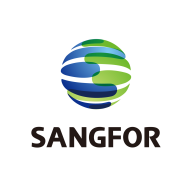


Check Point NGFW and Sangfor NGAF provide innovative solutions in the network security field, each excelling in specific aspects. Based on our data, Check Point appears to have an advantage with its advanced security features and user management ease, making it slightly superior in functionality.
Features: Check Point NGFW stands out with its robust IPsec VPN capabilities, content filtering, and a user-friendly management interface known for easy policy handling. It offers sophisticated integration options, making it suitable for complex environments. On the other hand, Sangfor NGAF excels in application control and integrates seamlessly with built-in SD-WAN, providing comprehensive network management and optimization. Its integration strengths make it appealing to organizations looking for streamlined solutions.
Room for Improvement: Check Point NGFW could benefit from enhanced support and stability, alongside a more straightforward licensing process. Sangfor NGAF's primary areas for improvement include GUI design enhancements and better bug handling mechanisms. Both could increase transparency around pricing structures, with Sangfor needing faster firmware update releases.
Ease of Deployment and Customer Service: Deployment of Check Point NGFW is supported by a robust global system, though response times can be sluggish. It remains an efficient choice for complex deployments due to strong support. Sangfor NGAF is notable for its ease of use and is often commended for its responsive customer service, suiting companies prioritizing rapid deployment and quick adaptability.
Pricing and ROI: Check Point NGFW, while on the pricier side, delivers exceptional ROI through comprehensive features, justifying its cost. Sangfor NGAF is more budget-friendly, offering flexibility and cost-efficiency. It delivers quicker ROI owing to its lower price point, making it an attractive option for cost-conscious buyers in pursuit of effective security solutions.



Fortinet FortiGate offers comprehensive network security and firewall protection across multiple locations. It effectively manages data traffic and secures environments with features like VPN, intrusion prevention, and UTM controls.
Organizations rely on Fortinet FortiGate for its robust integration with advanced security policies, ensuring significant protection for enterprises, cloud environments, and educational sectors. It facilitates network segmentation, application-level security, and authentication management, securing communication within and between locations such as branches and data centers. Its efficient SD-WAN and UTM features enable streamlined data management and enhanced threat protection capabilities. Users appreciate its centralized management, facilitating seamless operations across diverse environments.
What are the key features of Fortinet FortiGate?
What benefits should users expect from Fortinet FortiGate?
Fortinet FortiGate is crucial in sectors like education, offering robust networks for secure data flow between campuses and facilitating remote learning. In enterprise environments, it allows efficient management of application traffic and security across multiple branches, while in the cloud, it seamlessly integrates with diverse platforms to enhance security infrastructure.
Check Point NGFW provides comprehensive firewall protection, managing VPNs, and securing network perimeters with advanced threat prevention techniques. It's widely used to protect businesses, data centers, and ensure secure traffic management.
Check Point NGFW offers robust security for companies, delivering security features like threat prevention, URL filtering, and intrusion prevention across both layer 3 and layer 7. It supports remote access, web filtering, application control, and safeguards against malware, botnets, and zero-day attacks. With its intuitive management console, deep packet inspection, centralized management capabilities, and sophisticated threat detection, Check Point NGFW enhances network security and productivity. The system integrates seamlessly with other technologies and provides real-time monitoring, detailed reporting, and automated policy management. Additionally, its setup is straightforward, it scales well, and offers comprehensive logging.
What are the key features?Check Point NGFW is implemented in industries like finance, healthcare, and retail, where protecting sensitive data and ensuring compliance are critical. Its advanced security features and ease of management make it suitable for large enterprises and data centers, ensuring reliable and secure network operations.
Sangfor Next Generation Firewall (also known as NGAF) is a converged security solution providing protection against advanced threat, malware, viruses, ransomware and web-based attacks using integrated security features like firewall, IPS, anti-virus, anti-malware, APT, URL filtering, Cloud Sandbox, and WAF. As the world's first AI-enabled and fully integrated Next Generation Firewall & Web Application Firewall (WAF), NGAF offering the security visibility, real-time detection and response, simplified operation and maintenance and high-performance application layer security needed to operate an enterprise network in total security. Tested and proven to provide cutting-edge network security by ICSA Labs and endorsed by Gartner Inc., NGAF harnesses the power of Sangfor’s Neural-X threat intelligence and analytics platform and Engine Zero’s innovative malware detection to provide next-generation protection for today’s enterprise.
We monitor all Firewalls reviews to prevent fraudulent reviews and keep review quality high. We do not post reviews by company employees or direct competitors. We validate each review for authenticity via cross-reference with LinkedIn, and personal follow-up with the reviewer when necessary.